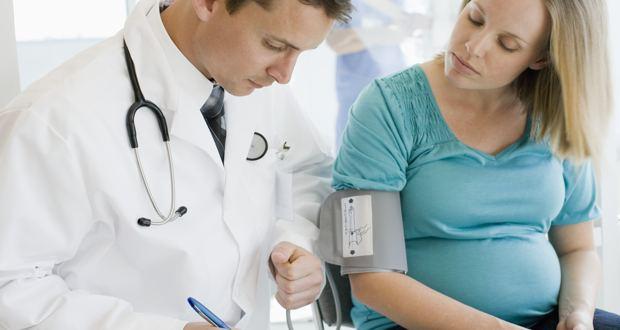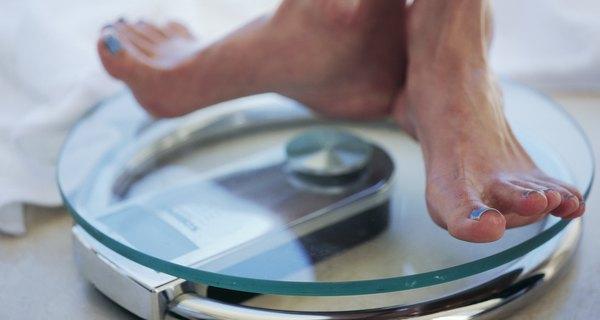Want a sucessful IVF cycle? Try losing some weight
 Obesity is quickly becoming a problem in India. According to Dr. Shobha Gupta IVF Expert from Mothers Lap IVF Centre, ’1.2 billion people, worldwide, are officially overweight (according to the WHO). And out of that number 70% of the urban Indian population is obese. While obesity is a problem in itself, there is a correlation between this and infertility. About 10% of the couples in the country are affected by infertility due to obesity.’ The statistics are alarming and definitely indicative of a strong connection between the two quickly rising problems. Moreover, doctors say that women who are obese are also at a greater risk of suffering from pregnancy related complications. So, why does this happen? We spoke to Dr Shobha Gupta who tells us about why women planning to have a baby or who are undergoing an infertility treatment need to lose weight, now.
Obesity is quickly becoming a problem in India. According to Dr. Shobha Gupta IVF Expert from Mothers Lap IVF Centre, ’1.2 billion people, worldwide, are officially overweight (according to the WHO). And out of that number 70% of the urban Indian population is obese. While obesity is a problem in itself, there is a correlation between this and infertility. About 10% of the couples in the country are affected by infertility due to obesity.’ The statistics are alarming and definitely indicative of a strong connection between the two quickly rising problems. Moreover, doctors say that women who are obese are also at a greater risk of suffering from pregnancy related complications. So, why does this happen? We spoke to Dr Shobha Gupta who tells us about why women planning to have a baby or who are undergoing an infertility treatment need to lose weight, now.
How are obesity and the success of infertility treatments correlated?
Both underweight and overweight women and men suffer from a higher incidence of infertility. I see at least 10 patients in a day, who come to me for infertility treatments, out of which which 3 to 4% are obese. Incidentally, women who are obese are also at a greater risk of suffering from complications during pregnancy like having a C-section, giving birth to a large baby or even developing gestational diabetes and hypertension.
According to the statistics, a body mass index (BMI) of 19 to 25 is considered to be the ideal weight for conceiving. A healthy body and optimum weight during pregnancy is crucial for having a smooth pregnancy and delivering a healthy child. If the couple does plan to undergo an infertility treatment like IVF, losing excess weight before undergoing the treatment can improve pregnancy and birth outcome. Scientefically, women with normal weight (with a BMI below 20) have higher live birth rates (38.6 percent) and embryo implantation (40.4 percent) compared to obese women (BMI above 30 -27.7 percent and 30.9 percent respectively). Read more about how obesity affects your chances of getting pregnant.
What are the complications overweight to obese women can face while they are trying to get pregnant via IVF?
There are numerous potential complications for obese women trying to get pregnant. Some of these include:
- Lower response to medication that are commonly used to regulate or initiate ovulation.
- They usually have PCOD (polycystic ovarian disease) and often need carefully titrated doses of medication.
- Obese women are at a greater risk of suffering from grave condition like over-stimulation, over-response to medication, and (or) multiple pregnancies in response to medications used to induce ovulation. While this may seem like a good thing to many, multiple pregnancies can lead to a larger number of obstetrical complications.
- Apart form that, these women are prone to have more complicated IVF cycles. These complications include:
- Greater technical difficulty retrieving eggs with greater risk of bleeding or injury. Therefore leading to fewer eggs being retrieved.
- Risk of suffering from complications due to anesthesia during the egg retrieval phase, including maintaining adequate airway, hypertension and aspiration.
- These women also face a difficulty with embryo transfer, as obesity hampers the proper visualization of the uterus and transferring the embryo effectively.
- Obese women also are likely to have a lower embryo implantation rate.
- Finally, all these complications lead to lower IVF success rates.
How can a woman lose weight before undergoing the IVF procedure?
The strategy to lose weight before pregnancy and otherwise are the same. It involves altering their lifestyle to make it more healthy and active. Obviously their diet does play an important role. Women trying to lose weight just before they undergo the treatment, must remember to have a balanced diet. Going on a crash diet can be bad for their long term health and do more damage than good. Apart from that, they need to get regular physical exercise, practice relaxation techniques, eat three complete meals namely – breakfast, lunch and dinner. Women should also remember to ditch foods with high amounts of sugar and switch to healthier substitutes for sugar like jaggery and fruits. They should include fresh fruits, green leafy vegetables and salads with nuts into their diet as well. Most importantly, if these women smoke, they should quit, as smoking interferes with treatment and causes a multitude of health problems.
You may also like to read:
- Are you ready for pregnancy?
- Is a normal delivery after c-section possible?
- How to get pregnant faster
- How to conceive after an abortion
- Egg freezing: A chance to delay your pregnancy
For more articles on conception, visit our pregnancy section. Follow us on Facebook and Twitter for all the latest updates! For daily free health tips, sign up for our newsletter. And to join discussions on health topics of your choice, visit our forum.
-
Savour this healthy bottle gourd/lauki curry recipe
-
7 health benefits of macadamia nuts that make it a diet essential
-
4 types of chips to avoid and 3 types you should eat when trying to lose weight
-
Honey: Categories, types and benefits
-
Healthy Kitchen Essentials
One of the most effective ways to stay on track with adiet is to cook
-
Cotton ball diet – A dangerous fad that can kill you!
- DON'T MISS
- 19-year-old Parag Doodhya loses 15 kg after fighting kidney disease
- Try working out in the water to lose weight!
- Push-up rotation — a variation of plank for slim, toned and sexy stomach
- Weight Loss Strategies
- 7 healthy snacks that aid in weight loss
- How to lose weight living in a hostel? (Diet query of the day)
- वज़न घटाने का नुस्ख़ा #2 – चार बार कम मात्रा में खाएं
- 7 real reasons why you are feeling hungry
- Five new workout regimes which will blow your mind!
- In your 50s? Follow these weight loss tips




